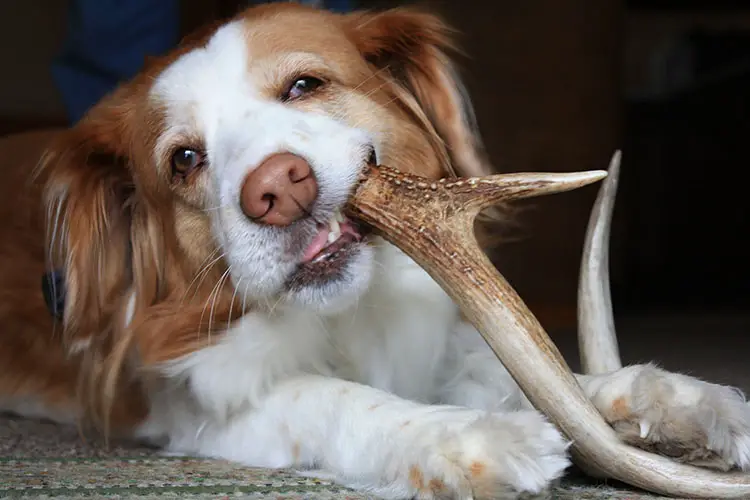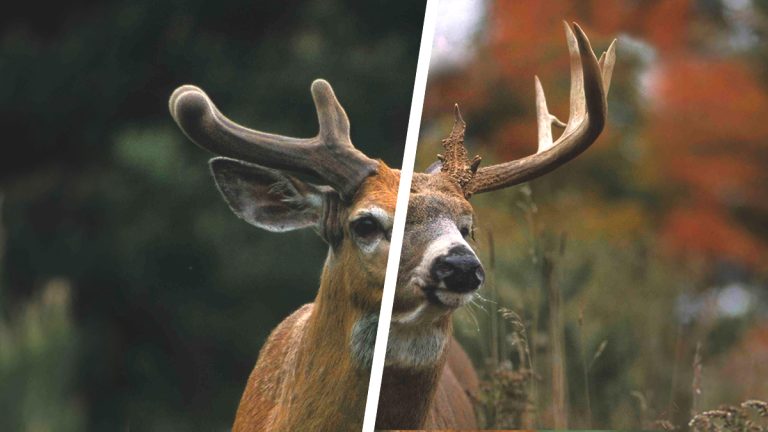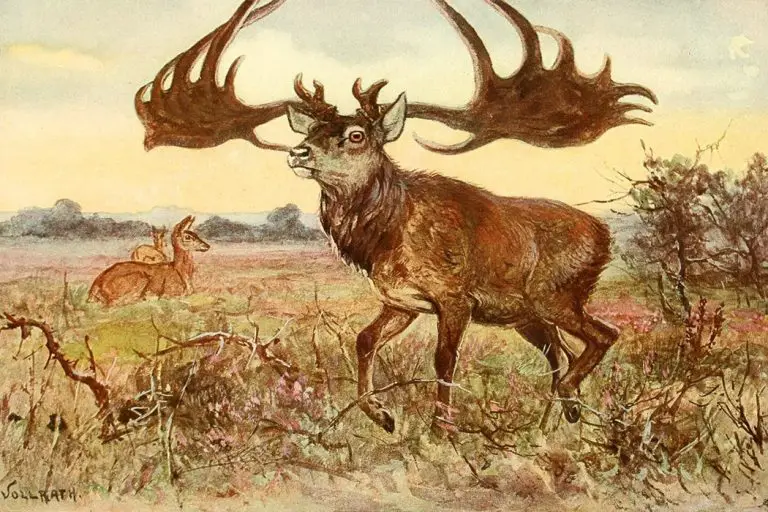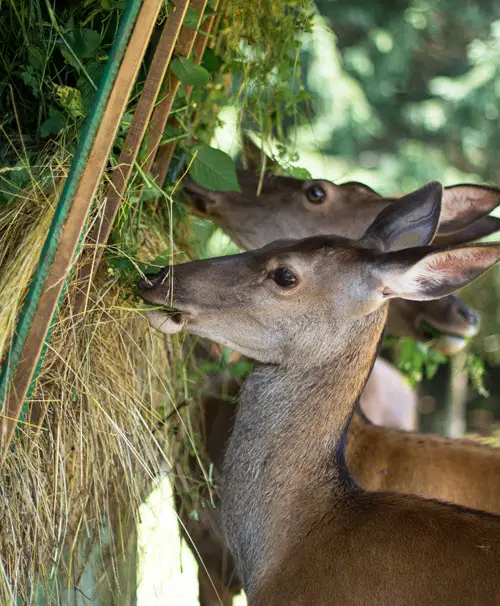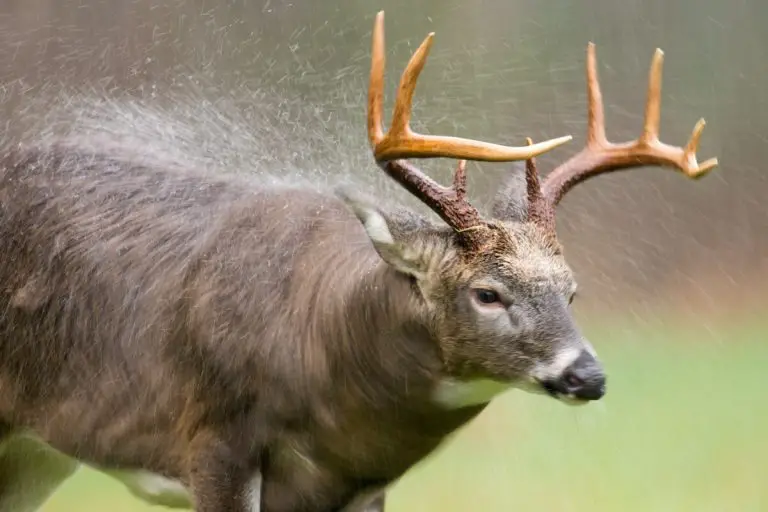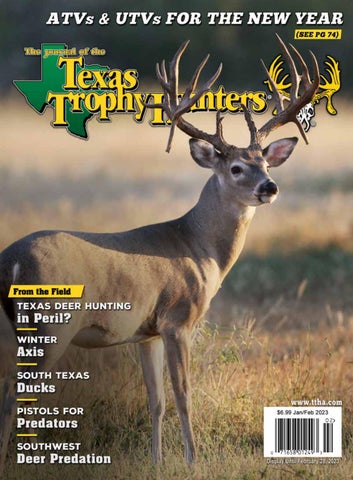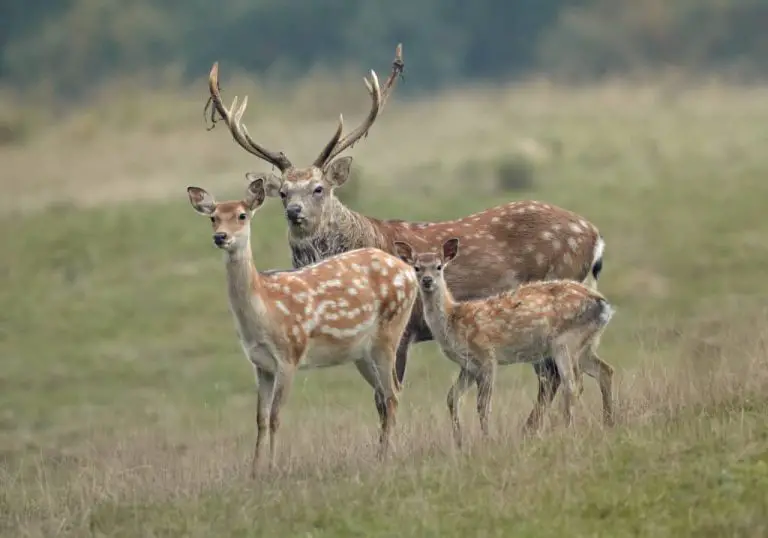Pros and Cons of Deer Antlers for Dogs
Deer antlers for dogs offer a durable chew option but can risk tooth damage. They provide natural minerals yet pose a choking hazard if small pieces break off.
Deer antlers have grown in popularity among pet owners seeking a long-lasting chew toy for their canine companions. Rich in essential nutrients, these natural chews entice dogs with their unique texture and taste. Unlike many processed options, deer antlers do not splinter easily, which makes them a safer choice in terms of avoiding digestive blockages.
Moreover, they are low in calories and can support dental health by helping to scrape away tartar build-up. However, the hard surface of antlers may lead to broken teeth or oral injuries. Careful supervision is crucial to ensure dogs do not ingest large pieces, which can cause intestinal obstructions or choking incidents. Before introducing this type of treat to your pet’s routine, it’s essential to weigh the potential benefits against the possible risks.
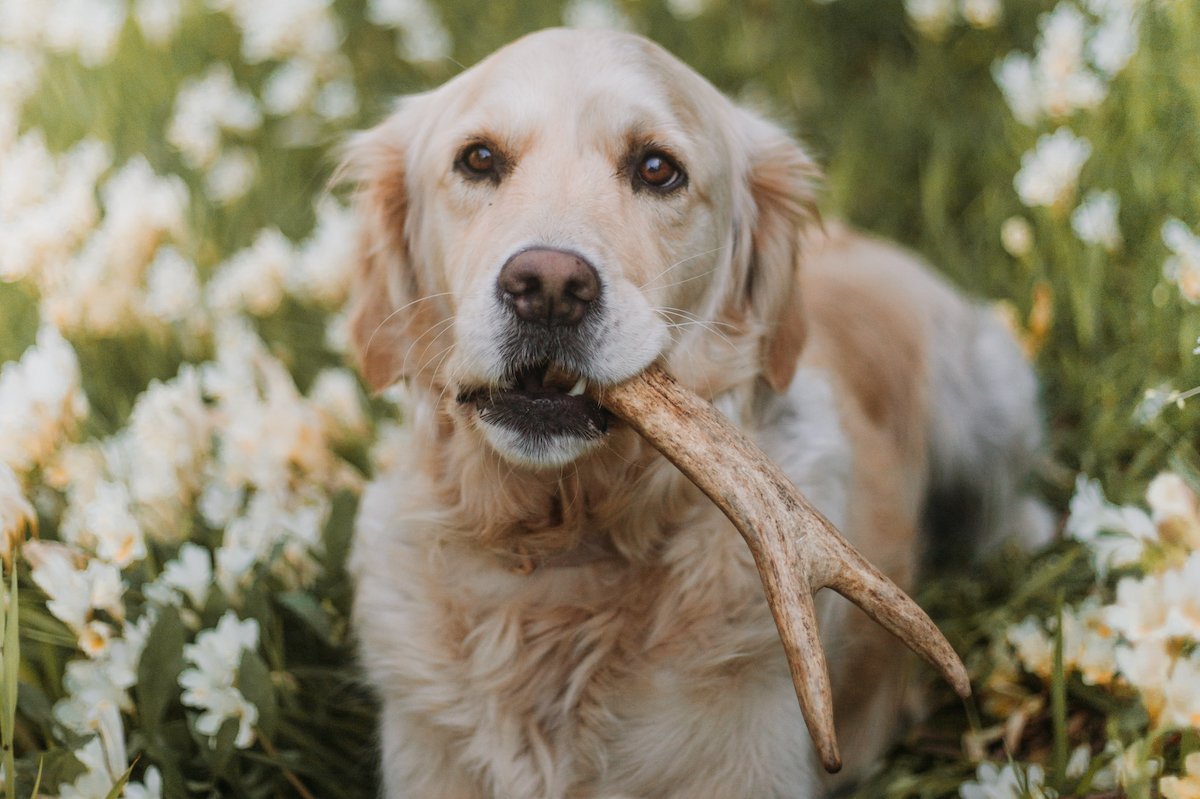
Understanding Deer Antler Dog Chews
Deer antler chews for dogs originate from naturally shed antlers of deer or elk. These organic materials are collected, cut, and sanded down to create various sizes suitable for dogs. Unlike other chew options, these are not manufactured from synthetic materials, which appeals to pet owners seeking natural alternatives for their pets.
The composition of deer antlers includes beneficial nutrients such as calcium, phosphorous, and other natural minerals. Their hard texture provides a durable chewing experience, capable of withstanding the jaws of aggressive chewers. This durability also means they last longer, providing a cost-effective solution for pet owners.
Due to their natural appeal and perceived health benefits, deer antler chews have gained considerable popularity and are readily available in the pet market. Pet stores, online retailers, and specialty shops offer a broad range of sizes and shapes, catering to dogs of all breeds and sizes.
Natural And Nutritious Benefits
Deer antlers offer natural and nutritional advantages as chew toys for dogs. They are rich in minerals such as calcium and phosphorus, which are crucial for bone and teeth health. Not only do they provide essential nutrients, but deer antlers also serve as a means of promoting mental stimulation. Dogs have an innate desire to chew, and deer antlers satisfy this urge, helping to keep their minds engaged and active.
Chewing on these hard substances can also aid in plaque removal and ensure good oral hygiene. The act of gnawing on the antlers is a positive way for dogs to relieve anxiety and boredom, possibly preventing destructive behavior. It’s important to select the appropriate size and type of antler to ensure it is safe for your dog and to monitor their chewing to avoid any potential risks.
Dental Health Advantages
Providing deer antlers to chew can significantly improve your dog’s dental health. These natural chews are known for their ability to help scrape off tartar and plaque as your pooch gnaws on them, leading to cleaner teeth and a reduction in the likelihood of dental diseases. This can result in fresher breath and fewer trips to the vet for dental work. It’s important to select the right size and type of antler to ensure that your dog reaps these benefits safely.
The antlers’ rough texture acts like a natural toothbrush, massaging the gums and removing the buildup of tartar and plaque. This process enhances overall oral hygiene, contributing to a healthier mouth environment for your four-legged friend. Nevertheless, supervision during chewing is essential to prevent any accidental splintering or swallowing of large pieces, which can be harmful.
Longevity And Less Mess
Dog owners often seek out chews that are durable and maintain their dog’s interest over time. Deer antlers, in this regard, serve as an excellent choice due to their impressive longevity. These natural chews withstand extended gnawing sessions, helping pet parents save money and reduce the frequency of chew replacements. Unlike many commercially available chew options, deer antlers commonly outlast the majority of their counterparts.
Moreover, dealing with foul-smelling dog chews can be off-putting for both owners and guests. A significant advantage of deer antlers is their minimal odor. They are favored by many for creating less mess, as these chews do not leave sticky residues or stain fabrics and furniture. This makes them a convenient and hygienic option for indoor use, ensuring a cleaner living environment for both dogs and dog owners.
Potential Dental Risks
Dog owners should be aware of the potential dental risks associated with deer antlers, including the possibility of broken teeth and oral injuries. These can result from aggressive chewing, especially in dogs with a powerful bite. Cases have been reported where dogs have suffered significant tooth damage, such as fractures, leading to expensive veterinary treatments. To mitigate risks, selecting antlers of appropriate size and density relative to the dog’s size and chew strength is essential.
Tips for safe chewing practices include supervising your pet during chew time, discouraging them from attempting to break the antler with excessive force, and replacing the antler when it is small enough to be swallowed. Offering alternative chew toys and consulting with a veterinarian can further ensure oral health and safety for your canine companion.
Digestive And Health Concerns
Feeding dogs with deer antlers can pose a significant risk of blockages and perforations in the digestive system. Owners must be vigilant and look for signs of gastrointestinal distress, which could indicate serious health issues. Symptoms such as excessive drooling, retching, an inability to defecate, and abdominal pain are strong indicators that the dog may be experiencing a blockage or perforation caused by the antlers.
Immediate veterinary consultation is imperative if any of these signs are noticed. Antlers, while long-lasting and engaging chew options for canines, can create sharp splinters when broken that can lead to internal injury. Ensuring chews are appropriate in size for the dog and replaced when small enough to swallow whole is crucial to reduce these risks.
Sourcing And Sustainability Issues
Deer antlers are popular chew toys for dogs, but their environmental impact cannot be overlooked. The harvesting processes involved may disturb natural habitats and can contribute to ecosystem imbalances. Sustainable sourcing of antlers, such as collecting naturally shed ones, is crucial to minimize these effects. Contrasting this, industrial collection methods can lead to overharvesting, affecting deer populations and biodiversity.
Ethical considerations also play a significant role in antler collection. Ensuring that antlers are humanely gathered without harming deer is vital. Harvesting methods that include the culling of deer raise animal welfare concerns and may be considered inhumane by many. Therefore, confirming ethical sourcing practices, where no animals are harmed for the procurement of antlers, is essential for conscious consumers.
Selecting The Right Antler Chew
Selecting the correct size of deer antler chew for your dog is crucial for their safety and enjoyment. Smaller breeds such as Chihuahuas and Dachshunds often do well with antlers that are thinner and shorter, allowing them to gnaw without strain. Larger breeds like German Shepherds or Labradors require thicker and longer antlers to withstand their powerful jaws and prevent choking hazards.
Introducing antlers to your pet should be a gradual and supervised process. To pique their interest, you might smear a small amount of pumpkin puree or peanut butter on the antler. Always supervise your pet with the antler chew and inspect for any potential splintering. If the antler becomes small enough to swallow, it should be replaced to maintain safety.
Monitoring And Safety Measures
Monitoring your dog’s chew time is crucial when providing them with deer antlers. It ensures that the animal does not break off large pieces that could become choking hazards or cause intestinal blockage. It’s important to observe your pet’s chewing habits closely to prevent dental fractures as deer antlers are hard objects. Signs of excessive wear or potential splintering warrant immediate removal of the chew.
Antler chews should be replaced regularly as they get worn down to a size that your dog could potentially swallow. Depending on your dog’s chew strength and frequency, this might occur within weeks or months. Always remove the antler chew if you notice sharp edges or if it has become small enough to be swallowed whole, as these can pose a serious health risk to your pet.
Alternatives To Deer Antlers
Deer antlers may not be suitable for all dogs, leading pet owners to seek comparable natural chew options. Elk antlers often emerge as a favorable alternative, known for being slightly softer and safer for beginners or dogs with sensitive teeth. Buffalo horns, on the other hand, provide a durable and longer-lasting chew but require supervision to prevent broken teeth.
For dogs that enjoy a bit of flavor, bully sticks are highly digestible and come in various shapes and sizes, catering to a dog’s individual chewing habits. Rope toys made from natural fibers can also be an excellent choice, promoting dental health through the fibrous material that flosses teeth during play.
| Chew Option | Pros | Cons |
|---|---|---|
| Elk Antlers | Softer texture, less likely to splinter | Can still pose a risk for aggressive chewers |
| Buffalo Horns | Long-lasting, less processed | Requires close supervision, risk of tooth damage |
| Bully Sticks | Flavorful, highly digestible | Can be high in calories, potential odor |
| Rope Toys | Dental benefits, different textures | Not for consumption, may unravel |
Frequently Asked Questions For Pros And Cons Of Deer Antlers For Dogs
Are Deer Antlers Safe For Dogs To Chew?
Deer antlers are generally safe for dogs as they don’t splinter like bones. However, they’re very hard and can cause dental fractures. Always supervise your dog while chewing and choose an antler that’s appropriate for their size.
How Nutritious Are Deer Antlers For Dogs?
Deer antlers contain beneficial nutrients like calcium, phosphorus, and zinc. However, they provide minimal nutritional value as most dogs don’t consume large amounts. They’re more for chewing pleasure than dietary supplementation.
Can Puppies Chew On Deer Antlers Safely?
Puppies can chew on deer antlers, but it’s not recommended. Their jaws and teeth are still developing, and hard chews can cause damage. Instead, opt for softer chew toys designed for puppies.
Do Deer Antlers Help With Dog’s Dental Health?
Yes, chewing on deer antlers can help scrape away plaque and tartar build-up, promoting better dental health. However, the hard nature of antlers means they should be used cautiously to prevent tooth damage.
Conclusion
Considering all points, deer antlers can be a natural chew alternative for dogs, with both benefits and drawbacks. They offer durability and dental health perks, yet potential risks can’t be ignored. It’s crucial for pet owners to weigh these factors against their dog’s chewing habits and health requirements before deciding.
Responsible monitoring is key to ensuring a safe and enjoyable chewing experience for your furry friend.

